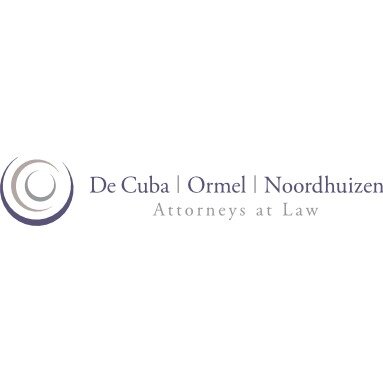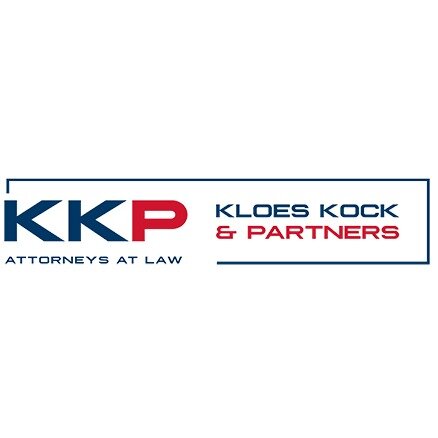Best Restructuring & Insolvency Lawyers in Aruba
Share your needs with us, get contacted by law firms.
Free. Takes 2 min.
Or refine your search by selecting a city:
List of the best lawyers in Aruba
About Restructuring & Insolvency Law in Aruba
Restructuring and insolvency law in Aruba focuses on the legal processes available to individuals and companies facing financial distress or bankruptcy. These processes allow debtors to either reorganize their business affairs with the goal of recovery or to fairly dissolve assets for the benefit of creditors. Aruban law provides a structured and transparent framework designed to ensure the equitable treatment of all parties involved, including debtors, creditors, employees, and other stakeholders.
Why You May Need a Lawyer
Legal advice is crucial when dealing with restructuring or insolvency scenarios due to the complexity of the laws and the significant consequences involved. You may need a lawyer if:
- You are a business owner facing cash flow problems and considering restructuring your debts.
- You are an individual overwhelmed by personal debt and unable to meet your financial obligations.
- Your company is being threatened with bankruptcy by a creditor.
- You are a creditor seeking to recover debts owed by a party in financial distress.
- You are involved in disputes over asset liquidation or distribution following insolvency.
- You wish to challenge or participate in insolvency proceedings initiated by others.
- You need to understand your legal rights and obligations if a business partner or client is declared insolvent.
- You want to ensure compliance with Aruban regulations relating to insolvency, including reporting and procedural requirements.
Local Laws Overview
Aruba’s restructuring and insolvency laws are largely based on the Dutch legal system but have specific local adaptations. Some key aspects include:
- Bankruptcy Proceedings: Bankruptcy (faillissement) is the formal legal process through which the assets of an insolvent person or entity are managed and distributed among creditors by a court-appointed trustee.
- Suspension of Payments (Surseance van betaling): This process allows debtors temporary relief from creditors while attempting to restructure debts or negotiate settlements.
- Role of the Courts: The Court of First Instance in Aruba is responsible for declaring bankruptcy and overseeing insolvency procedures.
- Trustee Appointment: In bankruptcy cases, an independent trustee is appointed to manage the debtor’s estate, secure funds, investigate claims, and distribute assets.
- Creditors’ Rights: Creditors must file their claims and can participate in meetings to discuss the distribution of assets, voting on settlement proposals, and raising objections.
- Director Liability: Company directors may be held personally liable for mismanagement or fraudulent activities leading up to insolvency.
- Cross-Border Issues: With Aruba’s open economy, cross-border insolvency issues can arise, and local courts follow specific guidelines regarding cooperation and recognition of foreign proceedings.
Frequently Asked Questions
What is bankruptcy in Aruba and how is it initiated?
Bankruptcy in Aruba is a legal process where an insolvent person or company’s assets are managed and distributed among creditors under court supervision. It may be initiated by the debtor or by one or more creditors filing a petition with the Court of First Instance.
What is the difference between bankruptcy and suspension of payments?
Bankruptcy leads to the liquidation and distribution of a debtor’s assets, while suspension of payments is a temporary process allowing debtors to negotiate repayment terms with creditors under court protection.
Who manages the bankruptcy process?
A court-appointed trustee manages the insolvency proceedings, secures and liquidates assets, and distributes proceeds to creditors as directed by the court.
Can a bankrupt individual or business continue to operate?
Generally, once bankruptcy is declared, control of the debtor’s assets passes to the trustee. However, in certain cases, the court may allow the continuation of limited business activities for the benefit of the estate.
How are creditors informed and involved in insolvency cases?
Creditors are formally notified and invited to file their claims. They can participate in meetings to discuss the debtor’s affairs, question the trustee, and vote on settlement proposals or liquidation plans.
What rights do secured creditors have?
Secured creditors, such as mortgage holders, enjoy priority claims over specific assets pledged as security. Their rights are generally protected and take precedence over unsecured creditors.
Are directors personally liable in insolvency situations?
Company directors can be personally liable if they acted negligently or fraudulently, causing or worsening the insolvency. Obligations regarding timely filing for bankruptcy and accurate financial reporting are strictly enforced.
Can insolvency proceedings in Aruba affect assets overseas?
While Aruban courts handle local assets, cross-border insolvency arrangements exist. The courts may cooperate with authorities abroad or seek recognition of Aruban proceedings in other jurisdictions.
What happens to employees in a bankruptcy or restructuring case?
Employee claims for wages and severance often receive preferential treatment in asset distribution, but job losses are common as business operations may be scaled back or ceased.
How long do insolvency proceedings typically last in Aruba?
The duration depends on the complexity of the case, the number of creditors, and the assets involved. Simple cases may resolve in months, while complex ones can take years to complete.
Additional Resources
For anyone involved in restructuring or insolvency in Aruba, the following resources can provide valuable guidance and support:
- Court of First Instance in Aruba: The official body handling bankruptcy and suspension of payment cases.
- Aruban Bar Association: Provides a directory of licensed lawyers specializing in restructuring and insolvency.
- Chamber of Commerce Aruba (KvK): Offers information and support for businesses facing financial challenges.
- Government of Aruba, Department of Economic Affairs: Can assist with business regulations and support mechanisms.
Next Steps
If you or your business are experiencing financial hardship or are considering entering into restructuring or insolvency proceedings in Aruba, consider taking the following steps:
- Contact an experienced lawyer specializing in restructuring and insolvency to obtain specific legal advice tailored to your situation.
- Collect and organize all relevant financial documents, asset lists, creditor information, and company records.
- Assess your business’s current financial condition and review all existing contracts and obligations.
- Consult with the Chamber of Commerce or relevant governmental agencies for information on support programs or restructuring options.
- Act promptly, as delays can limit your options and increase the risk of personal liability for directors and officers.
Seeking early legal advice can maximize your choices and help protect your rights and interests during restructuring or insolvency processes in Aruba.
Lawzana helps you find the best lawyers and law firms in Aruba through a curated and pre-screened list of qualified legal professionals. Our platform offers rankings and detailed profiles of attorneys and law firms, allowing you to compare based on practice areas, including Restructuring & Insolvency, experience, and client feedback.
Each profile includes a description of the firm's areas of practice, client reviews, team members and partners, year of establishment, spoken languages, office locations, contact information, social media presence, and any published articles or resources. Most firms on our platform speak English and are experienced in both local and international legal matters.
Get a quote from top-rated law firms in Aruba — quickly, securely, and without unnecessary hassle.
Disclaimer:
The information provided on this page is for general informational purposes only and does not constitute legal advice. While we strive to ensure the accuracy and relevance of the content, legal information may change over time, and interpretations of the law can vary. You should always consult with a qualified legal professional for advice specific to your situation.
We disclaim all liability for actions taken or not taken based on the content of this page. If you believe any information is incorrect or outdated, please contact us, and we will review and update it where appropriate.
Browse restructuring & insolvency law firms by city in Aruba
Refine your search by selecting a city.











